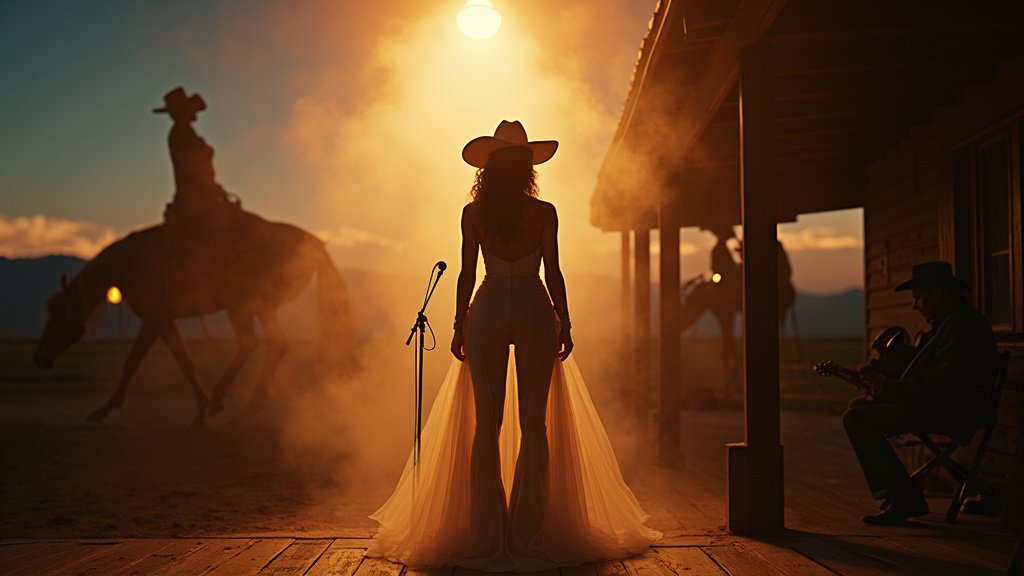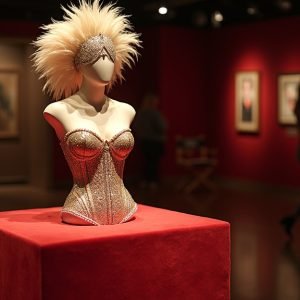A simmering debate within the country music industry recently boiled over, drawing in a diverse cast of characters: traditionalist Charley Crockett, rising star Gavin Adcock, global icon Beyoncé, and chart-topping sensation Morgan Wallen. What began as pointed social media commentary has escalated into a widespread discussion about the very definition of country music, its authenticity, and its evolving landscape.
A Spark Ignites the Debate
The latest chapter in this ongoing news unfolded on August 19th when Charley Crockett, known for his distinctive blend of traditional and roots music, took to social media. Crockett sparked a significant discussion by reposting memes and offering his thoughts on the state of country music. His comments appeared to subtly, yet pointedly, criticize Morgan Wallen, currently one of the genre’s biggest artists. Crockett highlighted the irony of a top country star who, by his own admission, primarily listens to rap music and doesn’t claim extensive knowledge of country tunes.
Crockett’s primary motivation for these remarks was to defend Beyoncé’s foray into the country genre with her critically acclaimed COWBOY CARTER project. He lambasted the industry for its intense focus on a Black woman exploring country music and making a statement about marginalized people, while seemingly overlooking the long-standing influence of pop artists and the “bro country” era, which he noted has incorporated trap beats for years.
The “Ain’t Country” Stance: Gavin Adcock’s Critique
Directly preceding or coinciding with Crockett’s comments, Gavin Adcock had already ignited his own firestorm regarding Beyoncé’s COWBOY CARTER. Adcock publicly criticized the album, vehemently stating it “ain’t country music” and arguing that it “doesn’t sound country, it doesn’t feel country.” His frustration was palpable, particularly as Beyoncé’s album surpassed his own Own Worst Enemy on the Apple Music country album chart. Adcock’s on-stage pronouncements quickly went viral, fueling a heated online backlash.
While Adcock later attempted to clarify his stance, acknowledging Beyoncé’s talent and even praising her past performances, he remained firm in his conviction that COWBOY CARTER should not be labeled as country music. His argument centered on the idea that artists who have dedicated their lives to the genre and lifestyle shouldn’t have to compete with an album that, in his view, doesn’t adhere to country sensibilities, simply “just because she’s Beyoncé.”
Beyoncé’s “Cowboy Carter” and the Genre’s Gates
Beyoncé’s COWBOY CARTER, released in March 2024, has not only dominated charts but also won Grammy Awards in country categories, yet it has continued to face significant debate over its genre classification. Beyoncé herself revealed that the album was over five years in the making and was born out of an experience years ago where she “did not feel welcomed” in the genre. This sentiment likely stems from the criticism she faced after her performance of “Daddy Lessons” with The Chicks (then Dixie Chicks) at the 2016 Country Music Association Awards.
Her project has reignited long-standing conversations about race, gatekeeping, and the historical contributions of Black artists to country music. Critics of the backlash argue that it often ignores the genre’s Black origins and the industry’s history of sidelining non-white artists. Many view COWBOY CARTER as a genre-defying work that challenges traditional boundaries, forcing a re-evaluation of what country music can be.
Morgan Wallen: The Crossover King in the Crosshairs
Morgan Wallen’s position in this unfolding drama is particularly intriguing. Charley Crockett’s comments about Wallen’s listening habits, specifically his preference for rap music, struck a nerve because Wallen is arguably the biggest name in modern country music.
Wallen’s own music often incorporates hip-hop-inspired beats and contemporary influences, blending traditional country elements with modern sounds. He has even collaborated with rap artists like Lil Durk on tracks such as “Broadway Girls,” and covers rap songs by artists like Post Malone. This fusion sound is a key component of his massive appeal, resonating with a wide audience. Crockett’s insinuation, however, suggests a perceived disconnect between Wallen’s personal music preferences and his status as the face of the country genre, fueling questions of authenticity for some.
The Bro-Country Legacy and Industry Evolution
This current news cycle is not an isolated incident but rather a continuation of debates that gained prominence with the rise of “bro-country” in the early 2010s. This subgenre, exemplified by artists like Florida Georgia Line, integrated strong elements of 21st-century hip-hop, hard rock, and electronica, characterized by upbeat music and lyrics about partying, trucks, and alcohol. “Bro-country” created a significant divide within the country music industry, with traditionalists lamenting the perceived dilution of the genre and its departure from its roots.
Many of the contemporary country artists, including Wallen, have grown up with and absorbed these diverse influences, leading to a sound that appeals to a broader, often younger, audience. The critique levied by Crockett suggests that while the industry embraces this fusion when it comes from established (often white male) country stars, it displays resistance when a global superstar like Beyoncé, who is Black, enters the same space with her own interpretation. This highlights a persistent tension between embracing commercial evolution and preserving perceived genre purity.
Implications for the Country Music Landscape
The ongoing discourse ignited by Crockett and Adcock, revolving around Beyoncé and Morgan Wallen, underscores a pivotal moment for the country music industry. It forces a critical examination of what defines country music in the 21st century. Is it solely about instrumentation and lyrical themes, or does it encompass a broader cultural identity and artistic expression?
The conversation also brings to the forefront issues of inclusivity and gatekeeping, particularly concerning Black artists. As artists like Beyoncé draw new audiences to the genre, the industry faces a choice: embrace its diverse roots and evolving sounds, or risk alienating a growing fanbase that seeks authenticity and representation across the musical spectrum. This debate is not merely about individual artists; it’s about the soul of country music and its trajectory for generations to come.




















